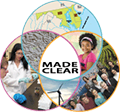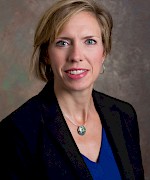
Amy Trauth-Nare
Associate Director
University of Delaware
Climate Science Specialties: Science Education
Amy Trauth-Nare is the Associate Director of Science Education at the Professional Development Center for Educators in the College of Education and Human Development. She has science teaching experience at middle grades, secondary and post-secondary levels. In her current position, Amy provides professional development and coaching to K-12 science and engineering teachers. Her research interests include classroom assessment, environmental education and inservice teacher development. Amy's mission supporting teachers in providing high quality science instruction to all students. Amy is also passionate about the Kingdom Plantae and issues related to biodiversity and conservation.
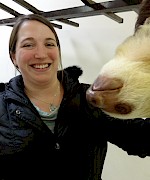
Andrea Drewes
Graduate Assistant
University of Delaware
Andrea Drewes is a doctoral student in Learning Sciences at the University of Delaware. Her research interests include how informal science learning environments can assist with the formal learning of science, as well as the use of formative assessment techniques to promote science learning. Prior to pursuing her Ph.D., she was the Coordinator for Teacher Professional Development at the Wildlife Conservation Society/Bronx Zoo. There she worked with classroom teachers to develop meaningful ways to integrate life science and conservation messages into classrooms of all types. Before moving into informal science education, Andrea taught middle school science in Worcester County, MD for five years. She holds a B.A. in Chemistry Education and a M.Ed. in Science Education from Salisbury University. Her work with MADE CLEAR includes supporting the Teacher Professional Development components of the program and conducting research on the development of students’ ideas on climate science.
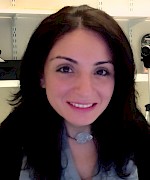
Asli Sezen-Barrie
Assistant Professor of Science Education
Towson University
Climate Science Specialties: Science Education
Dr. Sezen-Barrie is an Assistant Professor of Science Education and Coordinator of the Middle School Science Major at Towson University. Currently, her research interests are developing support systems for science teachers in implementing scientific and engineering practices and understanding the sociocultural dynamics of the interactions in science classrooms through discourse analysis. Previously, Dr. Sezen-Barrie was involved in projects to develop a framework for analyzing preservice teachers’ learning to teach science and an extensive international review of learning progression studies. Prior to her career at Towson University, Asli completed her PhD in Science Education at Penn State University where she worked with local middle school teachers in developing a model of informal formative assessments. Asli’s K-12 teaching experience includes teaching science and math at international middle schools (Istanbul, Turkey), coordinating educational activities for secondary schools at a botanic garden (Istanbul, Turkey & Oxford, England) and teaching elementary and middle school students at Science-U summer camp (State College, PA).
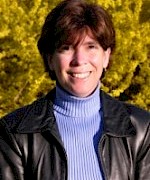
Cat Stylinski
Senior Agent
University of Maryland Center for Environmental Science
cstylinski@umces.edu
website
Education Specialties: Learning Sciences, Curriculum development, Science teacher education
Dr. Stylinski is a Senior Agent in the Appalachian Laboratory of the University of Maryland Center for Environmental Science. Her research interests and expertise include lifelong science learning; impacts of technology, media and community settings on science learning and connections to the natural world; links between teacher education and practice; and design and evaluation of science education programs.
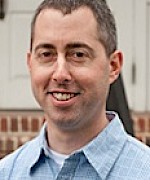
Chris Petrone
Marine Education Specialist
Delaware Sea Grant
petrone@udel.edu
website
Christopher Petrone is the Marine Education Specialist with Delaware Sea Grant, which is housed within UD’s College of Earth, Ocean, and Environment. Based at the Hugh R. Sharp Campus in Lewes, he conducts professional development for classroom teachers and informal educators in the ocean sciences. Additionally, Chris works with K-16 teachers and students, as well as informal students groups, such as the Boy/Girl Scouts, to increase environmental and ocean literacy and access to ocean science research. He has a B.S. in Biology from Washington College (MD) and an M.S. in marine biosciences from the University of Delaware. Prior to his current position, Chris has been a classroom teacher, commercial oyster grower, and a Marine Education Specialist with Virginia Sea Grant and the Virginia Institute of Marine Science.
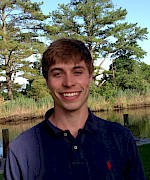
Chris McDonald
Graduate Assistant
University of Maryland College Park
r.christopher.mcdonald@gmail.com
Chris McDonald is a doctoral student in science education at the University of Maryland, College Park and a middle school science teacher in Montgomery County Public Schools, MD. Chris also taught high school chemistry for several years before moving to the middle school level. His research interests include climate change education, the teaching of socioscientific issues, and the development of science learning progressions.
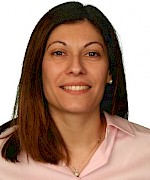
Chrystalla Mouza
Associate Professor, School of Education
University of Delaware
cmouza@udel.edu
Dr. Chrystalla Mouza is an associate professor of Instructional Technology and Learning Sciences in the School of Education at the University of Delaware. She earned an Ed.D., M.Ed, and M.A. in Instructional Technology and Media from Teachers College, Columbia University and completed post-doctoral work at the Educational Testing Service (ETS). She has expertise in the learning sciences including teacher learning, applications of technology in K-12 classrooms, and teaching and learning outcomes in ubiquitous and mobile computing environments. Dr. Mouza is the recipient of the 2010 Distinguished Research in Teacher Education Award from the Association of Teacher Educators and former Chair of the AERA Special Interest Group, Advanced Technologies for Learning. She serves on the editorial board of the Journal of Technology and Teacher Education.
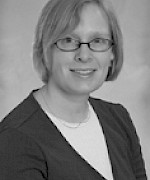
Dana Veron
Associate Professor, Physical Ocean Science and Engineering
University of Delaware
dveron@udel.edu
website
Climate Science Specialties: Energy, Atmosphere, Earth Systems
Dr. Dana Veron is an Associate Professor in the University of Delaware's College of Earth, Ocean and Environment. Her research interests include climate change, off-shore wind resource assessment, sea breeze circulation, land surface-atmospheric interactions, stochastic radiative transfer, cloud-aerosol-radiation interactions, Arctic energy balance, and surface optical properties.
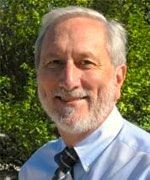
Don Boesch
Principal Investigator and President
University of Maryland Center for Environmental Science
boesch@umces.edu
website
Climate Science Specialties: Earth Systems, Policy
Don Boesch is a Professor of Marine Science and President of the University of Maryland Center for Environmental Science (UMCES). He is a biological oceanographer who has conducted research in coastal and continental shelf environments along the Atlantic Coast and in the Gulf of Mexico, eastern Australia and the East China Sea. He has published two books and more than 90 papers on marine and environmental science and policy. Presently his research focuses on the use of science in ecosystem management and in climate change adaptation. Dr Boesch is active in extending knowledge to environmental and resource management at regional, national and international levels. He led the team producing a comprehensive assessment of climate change impacts in Maryland, was a contributing author to Climate Change Impacts in the United States, and a member of the National Academy of Sciences committee that produced the report, America's Climate Choices.
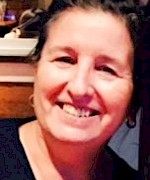
Donna Balado
Science Specialist
Maryland State Department of Education
donna.balado@maryland.gov
website
Education Specialties: PK-12 Curriculum
Donna Balado is Science Specialist for Environmental Science Literacy within the Maryland State Department of Education Division of Curriculum, Assessment & Accountability. In this role, she is responsible for providing leadership and direction in developing effective initiatives for improving student performance in environmental literacy programs aligned to the Maryland Next Generation Science Standards (NGSS) for students PreK-12. In addition, Donna provides technical assistance to local education agencies and external partners regarding Maryland NGSS, the Environmental Literacy Goal of the Chesapeake Bay Program, participates in the Maryland Partnership for Children in Nature and administers the Maryland Green Ribbon Schools Award program in collaboration with the US Department of Education.
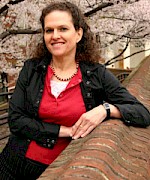
Gili Marbach-Ad
Research Associate Professor; Director, Teaching and Learning Center in the College of Computer, Mathematical and Natural Sciences,
University of Maryland College Park
gilim@umd.edu
website
Gili Marbach-Ad received a Ph.D. in Science Education in 1997 from Tel Aviv University for her dissertation on the subject of "Students' Conceptions in Genetics." Over the past fifteen years, she has been involved in numerous aspects of science education, including the development of study tools and the training of pre- and in-service teachers in Tel-Aviv University. From 2000-2006, Dr. Marbach-Ad was a faculty member with a tenure position, and the head of the Life-Science Education unit, at the department of Science Education at Tel-Aviv University. Currently, Dr. Marbach-Ad is the Director of the Teaching and Learning Center in the College of computer, Mathematical and Natural Sciences, University of Maryland (UMD). She is also a Research Associate Professor at the school of Education in University of Maryland (UMD).
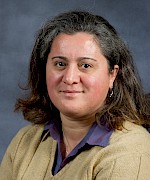
Gulnihal Ozbay
Professor and Extension Specialist in Natural Resources
Delaware State University
gulniozbay@yahoo.com
website
Climate Science Specialties: Coastal Systems, Human and Urban Systems
Dr. Gulnihal Ozbay is a Professor and Extension Specialist in Natural Resources in the Department of Agriculture and Natural Resources at Delaware State University. Her research interests are in the area of habitat restoration and water quality issues, specifically water quality driven toxicity in harmful algae, shellfish-algae dynamics, nutrient and water quality management, heavy metal contaminants, aquatic ecology and bacterial monitoring. She received her Ph.D. in Fisheries and Allied Aquacultures at Auburn University, Auburn, Alabama in 2002. She serves in the Research Advisory Committee for NOAA-LMRCSC and Technical Advisory Committee for the Northeast Aquaculture Center, currently as co-chair. She has also been honored by an appointment from the Secretary of the Delaware Department of Natural Resources and Environmental Control as a member of the Delaware Climate Change Vulnerability Assessment Steering Committee for the State of Delaware.
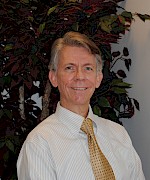
J.Randy McGinnis
Professor of Science Education
University of Maryland College Park
jmcginni@umd.edu
website
Climate Science Specialties: Science Education
I am Coordinator of the Science Education Center and a tenured faculty member at the University of Maryland (UM). I am Principal Investigator (Research, UM subcontract) for MADE-CLEAR (www.ClimateEdResearch.org). Previously, I served as a Principal Investigator (Research) for the Maryland Collaborative for Teacher Preparation (MCTP), a NSF funded mathematics and science teacher education program. More recently, I served as Project Director for the NSF funded research study Project NEXUS (www.DrawnToScience.org) that studied the recruitment, preparation and retention of upper elementary/middle school science by bridging formal and informal science education. My research interests are in two primary areas, Science Teacher Education, with an emphasis on socioscientific issues and exceptionally, and Bridging Formal and Informal Science Education. My teaching practice (K-12 and Higher Education) extends from 1981. It includes science and mathematics instruction in middle school (Swaziland, Africa), high school (Bronx, NYC), and elementary (Oregon and Georgia). Since 1992, it includes pedagogy and educational research instruction at the undergraduate and graduate levels (University of Georgia and UM).
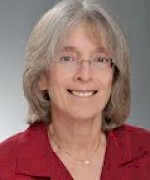
Jane Wolfson
Director, Environmental Science and Studies
Towson University
jwolfson@towson.edu
Dr. Wolfson has been the Director of the Environmental Science and Studies program at Towson University for 15 years. As its first director, she oversaw its growth from a fledgling program into a successful interdisciplinary major at both the undergraduate and graduate levels. She works to foster increased awareness of environmental challenges and actions that can address those challenges by connecting the campus community and her students to local businesses, NGOs, and governmental agencies at the local, state and federal level. With a Ph.D. is in ecology and evolution and postdoctoral appointments in entomology, her research has focused primarily on insect management in agroecosystems.
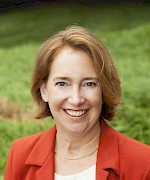
Jennifer Merrill
MADE CLEAR Delaware Project Manager
University of Delaware
merrillj@udel.edu
Dr. Merrill is the Delaware Project Manager for the MADE CLEAR project and also serves as the Research Coordinator for the Delaware Sea Grant College Program. Prior to her work at the University of Delaware she was a Senior Program Officer at the Ocean Studies Board of the National Research Council of the National Academies. During her six years she managed projects involving national and international committees that examined issues including marine natural products, deep sea ocean exploration, marine mammals and underwater acoustics, and fossil fuels in marine environments (oil and methane hydrates). Dr. Merrill served as a NOAA Sea Grant Knauss Fellow, and earned her Ph.D. at the University of Maryland’s Horn Point Laboratory in Marine and Estuarine Environmental Science with research on tidal freshwater and mesohaline marsh geochemistry.
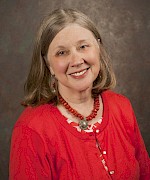
Joan Buttram
Director, Delaware Education Research and Development Center
University of Delaware
jbuttram@udel.edu
Joan L. Buttram is director of the Delaware Education R&D Center and Assistant Professor in the School of Education at the University of Delaware. She has over 35 years of experience conducting program evaluations, the majority focused on programs to improve outcomes for disadvantaged children. Since coming to Delaware in 2006, she has studied Delaware schools that outperform expectations and how district and school leaders spend their time. She is currently conducting research and/or evaluation studies related to high school reform, professional learning communities, multiple professional development and training programs in both K-12 and higher education, climate change, and health services for individuals with disabilities. She also teachers the doctoral level course on program evaluation for the School of Education and advises doctoral students in the Education Leadership program.
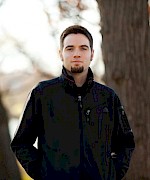
Joseph Henderson
Learning Scientist
University of Delaware
jhenders@udel.edu
Dr. Joseph Henderson is a Learning Sciences Researcher at the University of Delaware. Trained as an anthropologist of environmental and science education, his research investigates how sociocultural, political and economic factors influence teaching and learning in emerging energy and climate systems. He recently completed his Ph.D. at the University of Rochester, where he conducted ethnographic analyses of science learning, sustainability education, and educational policy. He previously taught middle school earth science in New York State after receiving a B.A. in Environmental Geology from Colgate University, and has also worked as an environmental educator in the Adirondack Mountains, where he is an Adirondack 46er. He currently serves as Secretary/Treasurer of the American Educational Research Association’s Environmental Education SIG.
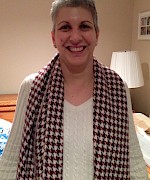
Melissa Rogers
MADE CLEAR Education Coordinator
University of Maryland Center for Environmental Science
mrogers@ca.umces.edu
Climate Science Specialties: Earth Systems, Geology, Science Education
Education Specialties: Science teacher education, School/University Partnerships, PK-12 Curriculum
Melissa J. B. Rogers is the Education Coordinator on the MADE CLEAR project. She has classroom teaching experience at the high school, community college, and four-year college levels, most recently physics, engineering, and research methods at Laurel School in Shaker Heights, Ohio. Prior to that, she worked on a variety of educational outreach activities for Case Western Reserve University, NASA, and several Ohio school districts. This work included development of classroom products, facilitation of summer academic programs, and creation and delivery of teacher professional development workshops including an NSF-funded MSP program and many years on a PD team for the JASON Expeditions. Her educational outreach work started while a Program Scientist at NASA working within the microgravity sciences program. She has BS and MS degrees in Geophysics from Virginia Tech where her focus area was regional earthquake seismology.

Nancy Shapiro
Co-Investigator
University System of Maryland
nshapiro@usmd.edu
My career in education started when I was a high school English teacher in Delaware and Chicago. I went back to graduate school and then came to work at the University of Maryland in the English Department. Over the years, I have been fortunate to be a builder of programs and partnerships, from the innovative College Park Scholars Honors Learning Community at the University of Maryland, to the school/university partnerships that were funded through grants from the U.S. Department of Education and the National Science Foundation: Learning in Communities (LINC); Education=Mentoring, Coaching and Cohorts (E=mc2); Vertically integrated partnerships (VIP), Minority Student Pipeline Math Science Partnership ((MSP)2), and most recently Maryland Delaware Climate Education, Assessment and Research (MADE CLEAR). My work focuses on P-20 STEM Education, teacher preparation, and creative ways of reaching the State’s college attainment goals. I was a history major at Brandeis University, graduated Magna Cum Laude and Phi Beta Kappa, earned my MAT from the University of Delaware, and completed my PhD in Curriculum and Instruction at the University of Maryland.
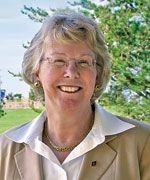
Nancy Targett
Co-Investigator
University of Delaware
ntargett@udel.edu
Dr. Targett is the Dean and Professor of the College of Earth, Ocean, and Environment at the University of Delaware and Director of the Delaware Sea Grant Program. She completed her Ph.D. in Oceanography at the University of Maine with a specialization in marine chemical ecology. Since then she has served on the Ocean Studies Board at the National Academy of Sciences, the National Research Council, the Mid-Atlantic Fisheries Management Council, and the Consortium on Ocean Leadership. She was selected as an Aldo Leopold Fellow and a National Associate of the National Academy of Sciences. She was also the associate editor for the Journal of Chemical Ecology.
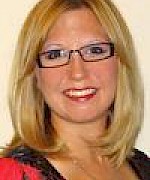
Natalie Ylizarde
Natalie Harr Ylizarde is a doctoral student in Science Education at the University of Maryland, College Park. She is a member of the UMD Learning Sciences Workgroup. Natalie's research interests include climate change education, computational thinking, STEM early learning, and teacher professional development. She has taught kindergarten and first grade in Ohio and was a 2013-2015 Albert Einstein Distinguished Educator Fellow at the National Science Foundation (NSF). As a teacher-liaison for Dr. Richard Lee’s NSF-funded Antarctic Research team (Miami University, Oxford) Natalie has spent time at the Palmer Station, Antarctica (2012, 2016, 2017, upcoming).
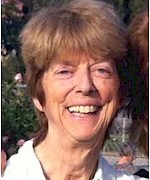
Pat Harcourt
MADE CLEAR Maryland Project Manager
University of Maryland Center for Environmental Science
pharcourt@umces.edu
Pat Harcourt has joined the University of Maryland Center for Environmental Science as the MADE CLEAR Maryland Project Manager. She got hooked on environmental science through research on baleen whale ecology in the northwest Atlantic. She worked at Waquoit Bay National Estuarine Research Reserve as a teacher specializing in translating marine science and data for use in the classroom and providing classes and teacher professional development in marine science, coastal science, and climate change. Pat was Program Manager at the Center for Ocean Science Education Excellence (COSEE) –West in Los Angeles California, where she worked with scientists, teachers, and informal science educators to bring marine science and climate science into urban classrooms and institutions. Her experiences carrying out research aboard sailing vessels have made her a strong proponent of experiential learning and student field studies.
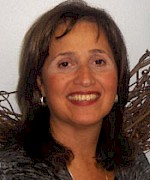
Rebecca Fox-Lykens
Director, Center for Teaching and Learning
Delaware State University
rlykens@desu.edu
Dr. Rebecca Fox-Lykens serves as Director of Delaware State University’s Center for Teaching and Learning (CTL). As part of the work of the CTL, Dr. Fox-Lykens assists faculty members in course design or redesign, syllabi construction and assessment of student learning outcomes. Prior to her serving as the CTL Director, she was Associate Professor in the Department of Education at Delaware State University. She has worked as a teacher-credentialing specialist at the Delaware Department of Education and as a Teacher Quality Researcher for Greenville County Schools in Greenville, SC. In addition, Dr. Fox-Lykens worked as a high school science teacher for over 10 years and thoroughly enjoys assisting college faculty in making memorable classroom experiences for young people.
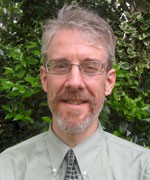
Wayne Breslyn
Research Associate
University of Maryland College Park
wbreslyn@umd.edu
website
Dr. Breslyn is a Research Associate at the University of Maryland, College Park working with the Maryland and Delaware Climate Change Education, Assessment and Research (MADE-CLEAR) grant from the National Science Foundation. His research interests include disciplinary differences in secondary science instruction, inquiry-based teaching and learning, and technology in education. Dr. Breslyn is a National Board Certified Teacher with over ten years’ science teaching experience.

